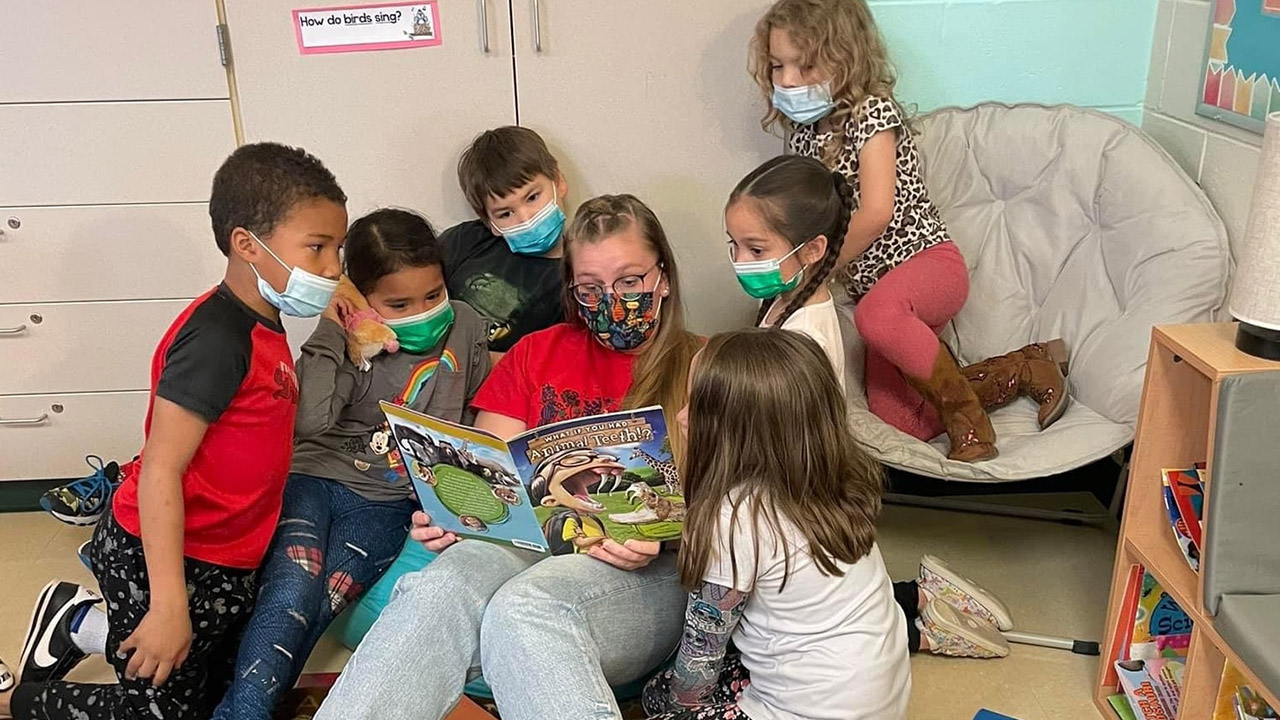
University of Wisconsin-Platteville alumna Jillian Meister wrapped up her final semester student teaching in Bayfield, Wisconsin, where she received the opportunity to implement culturally responsive teaching practices in her classroom. Meister, who graduated in May with a degree in elementary education, said the partnership between the university and Bayfield School District is beneficial for students in learning about Act 31, a legislation that requires Wisconsin schools to educate students about the history, culture and tribal sovereignty of the 11 federally-recognized tribes in the state, at least twice in elementary school and once in high school.
“It is so important as the teacher, you are aware of who your students are. Every student comes from a different background. Learning how to be culturally responsive to each student and knowing their culture can make your teaching practices something the students will remember,” said Meister, who is from Mount Horeb, Wisconsin. “Before I learned about Act 31, I honestly had no idea how to implement it in the classroom. To learn about it from a school that embraces it to the fullest and uses it every single minute of every single day really opened my eyes and showed me how easy it is to be culturally responsive to your students.”
In November, 14 School of Education students spent two weeks at Bayfield Elementary School for practicum experience. It was through that opportunity that Meister and fellow Pioneer Merideth Quarberg knew they wanted to student teach in the district. Nearly 80% of the students at Bayfield Elementary School are Native American, and the school works closely with the Red Cliff Tribe to provide instruction on Anishinaabe culture.
“On New Year’s Day, we each packed up our cars and made the six-hour trip to start student teaching that Monday,” said Meister. “I stayed in the kindergarten class I was in for the two weeks and student taught under Beth Dahl. Merideth [Quarberg] stayed with the same first-grade class she was with, student teaching under Allison Langford.”
Meister describes the Bayfield School District as a family, where the teachers guided and supported her experience inside the classroom – learning that anything is possible.
“We took a risk in student teaching in the district, and it worked out amazing,” said Meister. “Bayfield is a trauma-based school. Each student came in every single day with something going on in their lives. As student teachers, we had to learn how to manage. It's hard to wrap your head around what some of these students go through, but at the end of the day, knowing you did everything you could to make the students feel loved and knowing you made a difference in their day for the better was something to take home. Some days were harder than others. Some days we would come home defeated not knowing what to do, but I would not trade this experience for anything in the world.”
One of the most important lessons Meister said was having her cooperating teacher [Beth Dahl] show her culturally responsive teaching practices. Meister explained how Dahl learned Ojibwe, the language many of the students use in their home and how Dahl uses the language in her classroom.
“I learned a few phrases from her and the students,” said Meister. “I feel much more comfortable being able to incorporate culturally responsive teaching practices into my own classroom in the future. To know that I will always have a community where I can reach out to and ask for help if I need ideas is amazing.”
As Meister now embarks on her professional career, she hopes the relationship between the School of Education and the Bayfield School District stays intact.
“The partnership that UW-Platteville has with Bayfield is incredible and it should continue as long as possible,” said Meister. “I received experiences in Bayfield I never would have gotten in or near Platteville.”